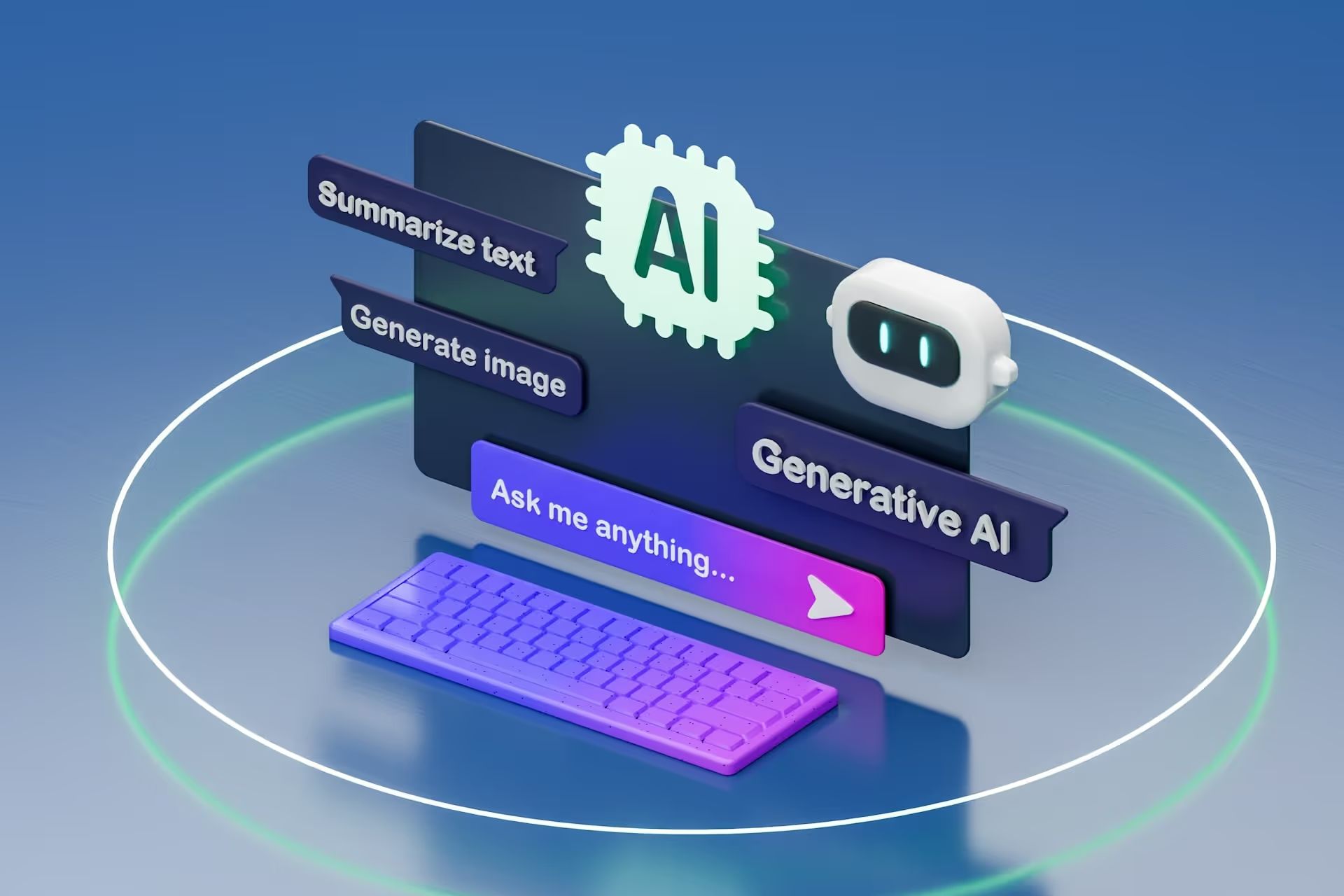In an era where information overload is rampant, finding precise data efficiently can feel like searching for a needle in a haystack. As technology continues to evolve, artificial intelligence (AI) has emerged as a game changer in the realm of search engines. These AI-powered tools not only revolutionize how we retrieve information but also refine the user experience in unprecedented ways.
From natural language processing to real-time updates, AI search engines are leveraging sophisticated algorithms to provide tailored results that cater to individual needs. This innovation offers users enhanced accuracy and context-aware answers, reducing the frustration often associated with traditional keyword searches. As we delve into the intricacies of these engines, understanding the features and capabilities of platforms like ChatGPT, Google Gemini, and Microsoft Copilot becomes essential.
In this article, we will explore the best AI-powered search engines, assessing their unique offerings and advancements in technology. Join us as we navigate the landscape of AI search engines, examining their strengths, challenges, and the future trends shaping this dynamic field.
ChatGPT: Natural Language Revolution
ChatGPT, developed by OpenAI, represents a significant advancement in AI-powered search engines, differentiating itself from traditional search platforms. At the core of its capabilities is the advanced GPT-4o model, which enhances its understanding of user queries through sophisticated natural language processing (NLP) techniques.
Unlike regular search engines, ChatGPT engages users in conversational interactions, allowing them to ask follow-up questions while maintaining context. This interaction mimics human communication, granting users the flexibility to phrase their queries naturally. Moreover, ChatGPT integrates web searches to provide detailed answers and links to sources, enhancing the user experience beyond a simple list of links.
Incorporating a user feedback system, ChatGPT allows users to rate responses with thumbs-up or thumbs-down. This feedback contributes to refining its search outputs, improving the relevance and accuracy of its answers over time.
| Features of ChatGPT | Benefits |
|---|---|
| Conversational Interactions | Mimics human communication |
| Context Maintenance | Allows follow-up questions |
| Natural Language Processing | Flexible query phrasing |
| Feedback System | Refines search outputs |
By leveraging machine learning and NLP, ChatGPT offers a unique generative experience, transforming how users interact with AI search engines.
Google Gemini: The Future of Information Retrieval
Google Gemini, previously recognized as Bard, represents a significant leap in AI-powered search engines. Unlike traditional search engines that primarily offer a list of links, Gemini leverages advanced AI models to generate detailed answers, summarize content, and provide insightful suggestions for further exploration.
One of Gemini's standout features is its adeptness in processing natural language queries, which vastly improves the user experience. This capability allows users to input queries in everyday language and receive accurate search results that cater specifically to their needs.
Key Features of Google Gemini:
- Natural Language Understanding: Facilitates easier search capabilities for user queries.
- Comprehensive Information: Offers precise statistical data and modifies responses based on user tone.
- Seamless Integration: Combines AI-generated answers with traditional Google Search results.
Gemini's design caters to a variety of user interactions, from writing assistance to detailed planning tasks, highlighting its user-friendly platform. By integrating these AI features with its existing search infrastructure, Google enables a generative experience that seamlessly moves between AI-powered insights and traditional organic search results. Thus, Google Gemini is not just a search tool but a transformative search platform, enhancing the way users interact with information.
Microsoft Copilot: Enhancing Productivity through AI
Microsoft Copilot, an AI-powered search engine, is revolutionizing the way users interact with search platforms. Unlike traditional search engines, Copilot leverages its integration with ChatGPT to facilitate real-time conversations, making it ideal for interactive searches. This capability enables users to quickly find the essence of information with just one text prompt, significantly improving research efficiency.
One of the standout features of Copilot is its ability to track previous requests, providing contextual follow-up answers without requiring users to rephrase their entire search queries. By utilizing large language models (LLM) and scanning the live web for up-to-date information, Copilot enhances the search experience by delivering succinct answers from multiple sources in response to a single prompt.
The effectiveness of Copilot as a productivity booster is evident in its ability to streamline research, allowing users to find detailed answers without wading through a list of links. This AI-powered tool is not only a testament to the power of natural language processing and machine learning but also a glimpse into the future of search capabilities. With Microsoft Copilot, users enjoy a more intuitive and efficient search process.
You.com: The User-Centric Search Experience
You.com redefines the concept of AI-powered search engines by prioritizing user-centricity and privacy. Designed as an AI productivity platform, it leverages natural language processing and deep learning technologies to deliver personalized answers and enhance user experience.
One of You.com's standout features is its commitment to user privacy. Unlike traditional search engines, it avoids bombarding users with ads and ensures personal data remains confidential. This focus on privacy is complemented by custom search capabilities that empower users to control the results they view, fostering a more tailored search experience.
The platform includes innovative features like YouWrite, an AI writing tool that supports content creation. With capabilities for image and voice search, You.com offers versatile search queries that cater to diverse user needs.
Key Features of You.com:
- AI Writing Tool (YouWrite): Facilitates content creation.
- Custom Search Experiences: Allows users to control search results.
- User Privacy Focused: Ensures data confidentiality and ad-free browsing.
- Versatile Search Formats: Supports image and voice search.
You.com's user-friendly interface ensures quick access to relevant content, making it ideal for users who value accuracy and privacy in their search endeavors.
Synthesis of Context-Aware Results
AI-powered search engines excel in synthesizing context-aware results by leveraging natural language processing (NLP) and machine learning capabilities. This allows them to understand user queries with greater depth and nuance, delivering more contextually relevant search outcomes than traditional search engines.
Key Features:
- Contextual Understanding: By focusing on user intent over mere keyword matching, these search engines align results closely with what users are actually seeking.
- Learning from Interactions: As these systems continuously learn from user interactions, their relevance and accuracy improve over time.
- Multi-Modal Input: AI search platforms support text, voice, image, and video inputs, creating a multifaceted search experience.
Unlike regular search engines that simply list links, AI-powered platforms summarize information, providing detailed answers. This is particularly useful for users aiming for quick, accurate search results. The advanced integration of these technologies ensures that AI-powered searches are more efficient, intuitive, and tailored to the diverse ways people search for information today. Whether typing in a search bar or speaking into a search box, these engines enhance user privacy and experience, efficiently addressing modern search needs.
Enhanced Accuracy: The AI Advantage
AI-powered search engines have transformed the way we navigate information by enhancing accuracy through advanced technologies. By using machine learning and natural language processing, these search engines can better understand user queries, delivering more relevant and accurate results compared to traditional search engines.
The integration of AI allows search platforms to provide intelligent suggestions and streamline the user experience with predictive capabilities. As a result, users benefit from a more personalized search experience, with AI analyzing user data and behavior to deliver tailored results quickly.
A significant advantage of AI-powered search engines is their ability to contextualize user queries. This means that they can interpret the intent behind searches more accurately, leading to more relevant search results. Additionally, AI engines aggregate data from multiple sources, ensuring a comprehensive view of information, which significantly boosts the efficiency and quality of search results.
To summarize, the use of AI in search engines offers several critical advancements:
- Improved understanding of user intent.
- Enhanced search relevance.
- Personalized user interactions.
- Comprehensive data aggregation.
These capabilities enable AI-powered search engines to deliver superior accuracy, enhancing the overall user experience in the search landscape.
Real-Time Updates: Staying Current
AI-powered search engines have revolutionized the way we access information by incorporating real-time updates, allowing for a more dynamic search experience. Unlike traditional search engines, which depend on fixed knowledge bases, these advanced platforms utilize live web scanning to provide up-to-the-minute information.
Generative AI search engines leverage large language models (LLMs) to interpret search queries, understanding user intent and relevant context. This capability enables them to deliver accurate and timely responses, enhancing user interactions and ensuring the information is aligned with current events and trends.
A significant advantage of AI technologies is their ability to prioritize content based on real-time relevance. This means that the search results not only reflect the most relevant information but also adjust to changing circumstances, improving user experience.
Benefits of Real-Time Updates
- Enhanced User Experience: Information retrieval is faster and more aligned with current events.
- Improved Relevance: Content is prioritized based on up-to-date relevance and user intent.
- Continuous Evolution: AI algorithms refine search capabilities over time.
These advancements in AI-powered search engines not only provide detailed answers but also redefine the traditional search dynamics, ensuring that users receive the most current and relevant information available.
Personalization: Tailored Information at Your Fingertips
In today’s digital landscape, AI-powered search engines are revolutionizing the way we access information by providing highly personalized search results. Unlike traditional search engines that depend on keyword matching, AI search engines use advanced algorithms and natural language processing to decipher user intent and deliver more relevant search results.
These systems analyze user demographics, behaviors, and past interactions to tailor content more accurately. This personalized approach not only enhances user satisfaction but also increases the chances of finding information that specifically addresses individual needs and preferences.
A notable feature of AI search engines is their ability to continuously learn and adapt. By analyzing real-time user interactions and feedback, these engines refine their personalization strategies, moving towards achieving hyper-personalization. This process involves understanding the deeper context of user queries beyond just recognizing user names.
Here's a quick comparison:
| Feature | Traditional Search Engines | AI-Powered Search Engines |
|---|---|---|
| Method | Keyword Matching | Contextual Understanding |
| Personalization Level | Basic | Advanced, Hyper-Personalized |
| Adaptability | Static | Continuous Learning |
By leveraging such capabilities, AI search platforms ensure that detailed answers are always at a user's fingertips, significantly improving the overall user experience.
User Experience: Intuitive Interfaces and Interactions
AI-powered search engines are revolutionizing user experience by offering more intuitive interfaces and interactions. Unlike traditional search engines, AI systems leverage advanced models to anticipate user needs, providing a seamless search journey.
Predictive search capabilities can forecast user queries by analyzing prior search patterns, location, and real-time data. This allows for proactive solutions, such as reminders and relevant suggestions, enhancing user engagement and satisfaction.
Key Features of AI-Powered Search Engines:
- Personalization: Tailored search results based on individual preferences and data.
- Machine Learning: Continuous refinement of query understanding and relevance ranking.
- Real-time Information: Quick aggregation and delivery of current and accurate information.
A comparison between traditional and AI-powered search engines highlights the transformative impact of AI in search platforms.
| Feature | Traditional Search Engines | AI-Powered Search Engines |
|---|---|---|
| Query Anticipation | Limited | Advanced and predictive |
| Personalization | Basic | Highly personalized |
| Real-time Data Use | Minimal | Extensive and dynamic |
This evolution leads to a more dynamic and relevant search experience, aligning with user intent and optimizing interactions over time. As AI search systems progress, they promise to further enhance usability and accuracy in search queries.
Addressing Hallucinations: AI Reliability Challenges
AI-powered search engines have revolutionized how users obtain information by offering detailed answers, relevant search results, and a generative experience that enhances search capabilities. However, one significant challenge they face is the tendency to "hallucinate" or fabricate inaccurate information. This can result in users receiving misleading or entirely made-up responses, undermining their trust in the search platform.
Errors can occur when an AI search engine, like Perplexity, draws upon its sources. For example, it might provide outdated details, such as the results of a completed sports match. Additionally, biases can emerge because algorithms often reflect the developers' perspectives, rather than relying solely on original sources.
To tackle these issues, some AI tools incorporate line-by-line citations to mitigate hallucinations. However, these references can be inaccurate or nonexistent, further complicating the matter. Moreover, the quality and consistency of training data significantly influence the accuracy and reliability of responses generated by AI search engines.
Efforts to address these challenges can include improving training datasets, refining natural language processing techniques, and ensuring greater transparency in user interactions. By doing so, search engines can enhance user experience and provide more reliable, accurate search features.
Privacy Concerns: Protecting User Data
AI-powered search engines have revolutionized the way we access information, but they also bring privacy concerns to the forefront. Techniques like federated learning and differential privacy are employed by AI-driven platforms such as Waldo to enhance user privacy, ensuring data stays secure during searches. These methods help search engines prioritize user privacy without compromising the quality of search results.
While AI tools enhance the efficiency and capabilities of search engines, they often collect data on user search histories and interactions to personalize experiences. However, this data collection can raise privacy concerns, particularly if it's done without explicit user consent. Transparency in data operations is crucial in mitigating user skepticism and fostering trust.
User trust and loyalty are significantly enhanced when search platforms not only protect data but also offer ad-free experiences. This balance between efficiency and privacy is essential as AI continues to shape the future of search engines.
Key Considerations for AI Search Engine Privacy:
- Use privacy-focused techniques (e.g., federated learning).
- Collect data with transparent user consent.
- Prioritize ad-free, user-centric experiences.
- Ensure transparency in operations to build trust.
Careful navigation of these considerations can help reconcile efficiency and privacy in AI-powered search engines.
Future Trends in AI Search Technology
AI-powered search engines are revolutionizing how we source information by delivering results that are more relevant, personalized, and efficient, thanks to cutting-edge algorithms. As AI technology evolves, it heralds future advancements in search engines, particularly in enhancing features like voice search, real-time updates, and user interactions. These improvements promise even more intuitive user experiences.
For instance, OpenAI's SearchGPT, launched in July 2024, focuses on improving user experience by organizing contextual search results rather than merely providing a list of links. Similarly, Perplexity, founded in August 2022, blends AI-powered research with a custom search engine to deliver precise answers to user queries.
The integration of generative AI tools from leaders like OpenAI and Google into platforms such as Lucidworks significantly boosts search capabilities. These tools not only enhance AI-driven search but also drive the development of digital experiences that are best in class.
Future advancements in AI search technology will likely focus on:
- Enhanced voice search and natural language processing.
- Real-time, intuitive user interactions.
- Improved user privacy measures.
These trends highlight the potential for AI-powered search engines to redefine how we interact with information.
Comparative Review of Leading AI Search Engines
In recent years, AI-powered search engines have revolutionized how we navigate the web. Unlike traditional search engines, these AI-driven platforms leverage advanced natural language processing to comprehend the context of user queries. This results in more intuitive and relevant search outcomes.
Among the leaders in this arena is Google Gemini, renowned for its ability to generate detailed answers and summaries. By focusing on user intent and real-time data, AI search engines can adjust search results dynamically, ensuring greater user satisfaction. They also excel at presenting concise information summaries instead of mere lists of links, significantly enhancing the search experience.
Here's a brief comparison:
| Feature | AI-Powered Search Engines | Traditional Search Engines |
|---|---|---|
| Natural Language Processing | Advanced | Basic |
| Understanding User Intent | Superior | Limited |
| Type of Results | Summaries and Contextual | List of Links |
| Real-Time Adjustments | Yes | No |
| Focused on User Satisfaction | High | Moderate |
By incorporating SEO practices, these search engines prioritize the most relevant information on initial results pages, improving search accuracy. Moreover, AI-powered platforms consider factors like browsing history, enhancing user interactions and providing a more personalized search experience.
Conclusion: Choosing the Right AI-Powered Tool
In conclusion, choosing the right AI-powered search engine depends on understanding your specific needs and how these tools align with them. With the rising popularity of AI-powered search engines, as evidenced by projections of 90 million U.S. users by 2027, selecting the right platform is crucial.
Key Considerations:
- User Experience: Platforms like Google Gemini and Microsoft Copilot elevate the search experience through advanced language models, delivering not just relevant search but also comprehensive summaries and detailed answers.
- Integration & Compatibility: Consider how well the tool integrates with your existing systems. Microsoft Copilot, integrated with Bing and developed in collaboration with OpenAI, shows enhanced user interaction and search capabilities.
- Feature Set: Evaluate the features like AI-generated insights from Google SGE, which offer enriched user experiences through visual and voice searches, ensuring accurate search results.
- User Privacy: Opt for platforms that prioritize user privacy, essential for building trust and ensuring secure user interactions.
Choosing an AI-powered search engine that meets your needs can significantly enhance user satisfaction and boost business conversion rates through its adaptive and intuitive search capabilities.
FAQs About AI Search Engines
AI-powered search engines represent a significant evolution from traditional search engines, leveraging advanced technologies like machine learning and natural language processing to enhance search capabilities. Here are some frequently asked questions:
1. How do AI-powered search engines differ from traditional search engines?
AI search engines go beyond keyword matching by interpreting the context and intent behind search queries. This approach leads to more accurate and relevant search results.
2. What role does machine learning play in AI search engines?
Machine learning algorithms enable these search platforms to analyze web content and user interactions, continuously refining and updating information indexes for a superior search experience.
3. How do AI-powered search engines enhance user privacy?
These engines are designed to prioritize user privacy by minimizing data collection and focusing on improving search quality through AI technologies.
4. Are AI search engines effective for all types of queries?
While AI search engines excel at delivering context-rich detailed answers, they may lag in providing real-time navigational searches compared to traditional platforms.
5. Why is there a growing trend towards AI-powered search solutions?
With 68% of adults using generative AI for inquiries, users appreciate these engines' ability to deliver accurate responses to complex user queries through natural language processing.





